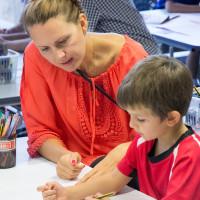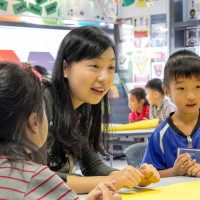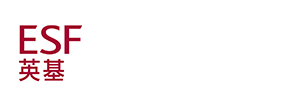Supporting student learning
 In the IB’s Every Teacher is a Language Teacher, it is stated that “languages have always been at the heart of the IB. You can’t build an international organisation without embracing them, and you can’t nurture international mindedness without enabling students to do the same.”
In the IB’s Every Teacher is a Language Teacher, it is stated that “languages have always been at the heart of the IB. You can’t build an international organisation without embracing them, and you can’t nurture international mindedness without enabling students to do the same.”
The number of cultures represented by both students and staff in DC is staggering. Even more remarkable are the languages these cultures bring with them. A person’s language influences how he or she communicates, but also with whom the person chooses to communicate, and how effectively the thoughts and ideas are shared.
At DC we fully recognise the importance of students’ mother tongues and encourage their use. In Years 1 and 2, we have been running highly successful mother tongue programmes with the help of parent volunteers to support student learning. Students are given a choice of language groups to be part of, such as German, Japanese, Korean, Mandarin and Cantonese, and then discuss in their chosen language the concepts and ideas they have been learning about inside the classroom.
 These groups help students to develop their ideas further, with greater confidence, while receiving constructive feedback from adults or friends. They can then go back into the classroom and share their thinking with the entire class. Sometimes students want to tell us what they are thinking but find it challenging because they don’t yet have the language for it. The mother tongue groups are an invaluable opportunity for students who don’t always feel comfortable communicating their ideas in English to share and participate more in the learning.
These groups help students to develop their ideas further, with greater confidence, while receiving constructive feedback from adults or friends. They can then go back into the classroom and share their thinking with the entire class. Sometimes students want to tell us what they are thinking but find it challenging because they don’t yet have the language for it. The mother tongue groups are an invaluable opportunity for students who don’t always feel comfortable communicating their ideas in English to share and participate more in the learning.
The mother tongue groups have become an integral part of the early years programme at DC. They wouldn’t be possible without the help and support of our parent volunteers. The importance of the mother tongue groups is critical because they have a huge impact on supporting students as they connect with each other and their learning.
